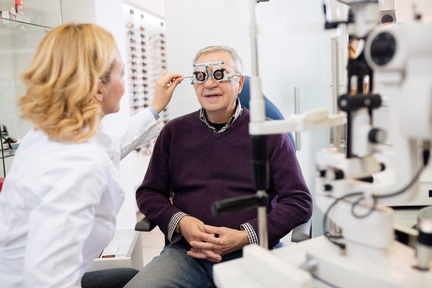Latest News from Everycare
 Everycare Eastbourne are pleased to be working alongside Owain Wright from ‘Care Funding Guidance’ and ‘The Live in Care Hub’ to develop a guide about the ways people can access the funds they need to be able to pay for their care, specifically live in care.
Everycare Eastbourne are pleased to be working alongside Owain Wright from ‘Care Funding Guidance’ and ‘The Live in Care Hub’ to develop a guide about the ways people can access the funds they need to be able to pay for their care, specifically live in care.
The guide is a free tool that gives people all the information they need and sign posts them towards the relevant sources of funding. With live in care quickly becoming the option of choice over a residential setting it’s vital that people know how to access the funding that they need.
Please click on the image to the left to view the Care Funding Guide.
Nine out of 10 councils in the UK are failing to pay realistic prices to support older and disabled people in their own homes, the industry says.
The UK Home Care Association calculated the minimum price councils should be paying was £16.70 per hour, but the average was over £2 less.
Councils said they had been left with little choice given the squeeze on their finances by the government.
But the UKHCA said the situation was threatening the future of the market.
It warned agencies were struggling to recruit staff and maintain quality, noting growing numbers of organisations were handing back contracts to councils. For more information on this story visit http://www.bbc.co.uk/news/health-37756433

A new dementia atlas, published by the government, reveals patchy NHS care for the condition across England.
While some regions on the map appear to meet national standards in terms of offering regular reviews and support, others fall short, says Health Secretary Jeremy Hunt.
He said tackling the disease was a key priority and the new atlas should drive improvements.
Charities said the “postcode lottery” of care was unacceptable.
For more on this story visit the BBC website.
 Eye and smell tests could be used to help spot the early signs of dementia, years before people experience memory symptoms, new research has suggested.
Eye and smell tests could be used to help spot the early signs of dementia, years before people experience memory symptoms, new research has suggested.
The study conducted by London’s Moorfields Eye Hospital revealed that the thickness of the retinal nerve and protein deposits in the eye could be used to detect the early signs of neurodegeneration. The research was presented at the Alzheimer’s Association International Conference (AAIC) 2016 in Toronto on Tuesday 26 July.
Researchers conducted a type of eye scan called spectral domain optical coherence tomography (SD-OCT) on 33,068 people aged 40-69. Scientists measured the thickness of the retinal nerve fibre layer (RNFL), which is known to decrease with age, while participants also took part in memory tests, to gauge reasoning and reaction time.
To read more on this report visit the Homecare website.
 Everycare Eastbourne are pleased to be working alongside Owain Wright from ‘Care Funding Guidance’ and ‘The Live in Care Hub’ to develop a guide about the ways people can access the funds they need to be able to pay for their care, specifically live in care.
Everycare Eastbourne are pleased to be working alongside Owain Wright from ‘Care Funding Guidance’ and ‘The Live in Care Hub’ to develop a guide about the ways people can access the funds they need to be able to pay for their care, specifically live in care.


 Eye and smell tests could be used to help spot the early signs of dementia, years before people experience memory symptoms, new research has suggested.
Eye and smell tests could be used to help spot the early signs of dementia, years before people experience memory symptoms, new research has suggested.